Student Blog
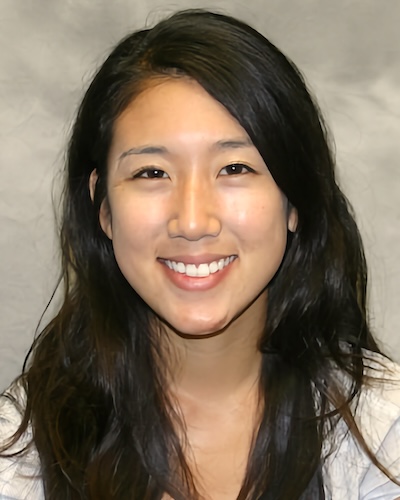
OT Prom ⟩
May 12, 2010, by Sarah
Maintaining wellness results from a good balance of work, rest, and play so I’m getting a good amount of play before my last fieldwork starts!!!
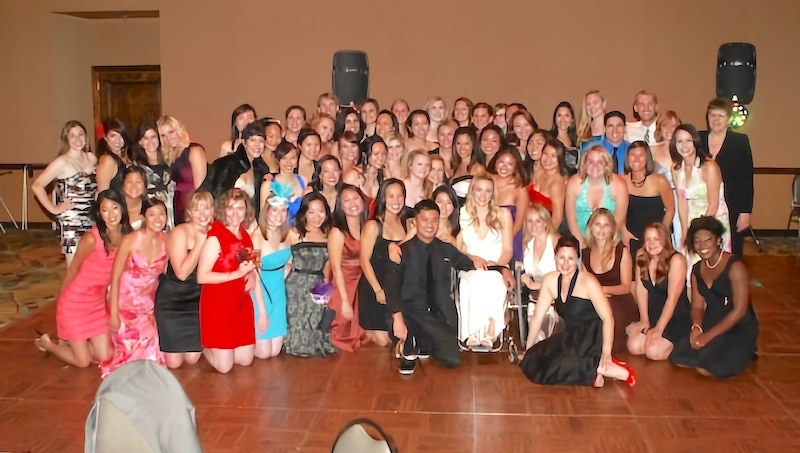
⋯
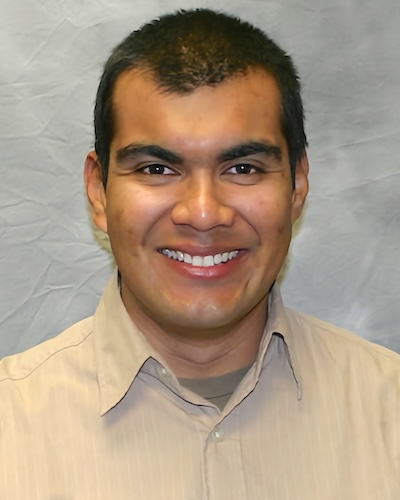
It all winds down . . . ⟩
May 10, 2010, by Gustalvo
Fieldwork Getting Involved Living in LA School/Life Balance What are OS/OT?
So, I’ve passed my comprehensive exam (i.e., comps), I’ve recently come back from AOTA’s 90th National Conference in Florida, and I am looking forward to one more fieldwork this summer — I feel pretty satisfied with myself right now. 😊
These last couple of weeks have been intense with papers, exams, and comps. But I survived, and part of what has helped me is reading and playing music. I’ve been able to squeeze in some leisurely reading (Alice’s Adventures in Wonderland), play some gigs with my mariachi ensemble, and jam on my own. Speaking of playing gigs, the mariachi that I’m in, Mariachi Sur de California, recently played a few gig on 5 de Mayo one of which was really fun; Los Angeles Southwest College put on a 5 de Mayo event on their campus for local elementary school children. The band had never had a crowd that was so in to the music, just about everyone stood up; children clapped, people sang — it was the most gratified I’ve ever felt at a gig. Also, we played at a church for Mother’s Day; that too went very well. It feels good to be playing and engaging in one of my most favorite occupations.
I also like to record on my free time, but lately I haven’t been able to and so I just jam on my own and I keep practicing snippets of ideas that I come up with so that I can record them over the summer when I have some time.
I can’t wait to get to get this summer started; you could say that I’m about to embark on my dream fieldwork experience. I’m interested in going in to the field of mental health, preferably in community mental health settings, but I also am interested in phys-dys. So, long ago when I was picking out my top ten choices for this summer’s fieldwork I spoke with Jaynee, our Fieldwork Coordinator, about what I wanted and she really helped me out in finding locations to pick from; she brought up transitional living centers (TLCs). I was excited about this for I had observed a TLC during one of my earlier rotations. A TLC basically helps individuals that have come out of inpatient acute rehab to reintegrate themselves back in to their communities. It involves facilitating how to get around, going grocery shopping, and helping them organize their day so that they may be independent among other things. To me it’s the perfect balance between the two worlds I want to combine, though mental health is and can be applied in any setting at any moment, I think the TLC will be a great fit for me!
OH! also, about a week ago I went to AOTA’s national conference in Orlando! It was a great experience. There was a workshop that caught my attention which I’m glad it did: “Engaging Marginalized Populations Through Qualitative Research.” This was one of the the most up was one of the most interesting workshops I attended. It touched about understanding the experience of marginalized populations, and how these experiences influence their occupational choices and participation. There were three speakers each touching upon the experiences of the the undocumented in the US, people suffering from obesity, and women who have just come out of incarceration. Learning of how stigmas influences these populations occupational choices and participation was very eye opening to me and has further encouraged my desire to do research in the future. The Q&A afterward was very engaging as well. I think the main take home message was that as OTs we need to advocate for populations that are suffering from occupational injustices**. That in addition to advocating for our profession we must also prioritize advocating for populations in need of occupational therapy and break the borders that currently create this schism between OT and underserved populations! It was a very exciting, uplifting, and refreshing workshop to say the least, and it was very unfortunate to see that so few people attended!
This conference was significant not only because it was my first, but also because Dr. Florence Clark was inaugurated as AOTA’s president! Congratulations Dr. Clark!
Anyway, I’m “walking” this Friday and I’m very excited, but also a little stressed since my cap & gown have yet to arrive!!! But I’m sure all will be fine, as everything always does!!
**Occupational justice = the concept that, to develop and thrive, humans are beings that need and want to participate in occupations. So, when there’s an occupational injustice due to a disability or environment, the focus is to enable these populations/individuals to access opportunities and resouces so that they may develop and thrive.
⋯

That was fast! ⟩
April 28, 2010, by Sarah
Only 3 more days to go!!! Happy belated Stress Management Day! To celebrate, we had a couple activities (aroma therapy, crafts, Japanese tea ceremony, breathing workshops and my favorite activity — snacking — on healthy snacks of course) on the main campus yesterday to help students de-stress before finals. If you’re on main campus next semester, make sure to check us out the week before finals! Good luck on finals everyone, and HAPPY OT MONTH!
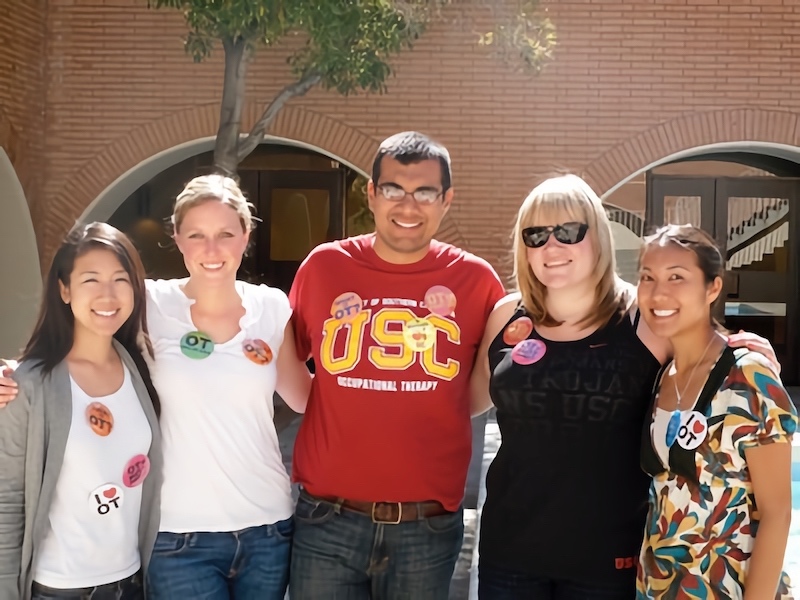
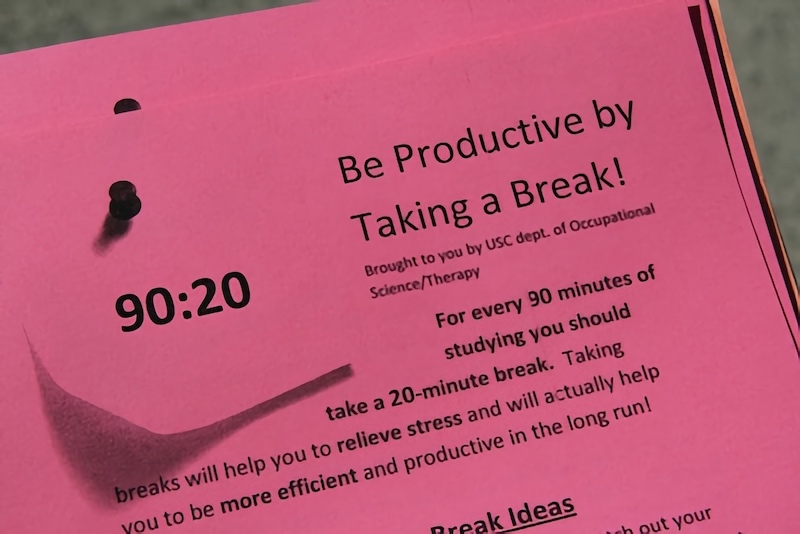
A helpful study tip!
⋯
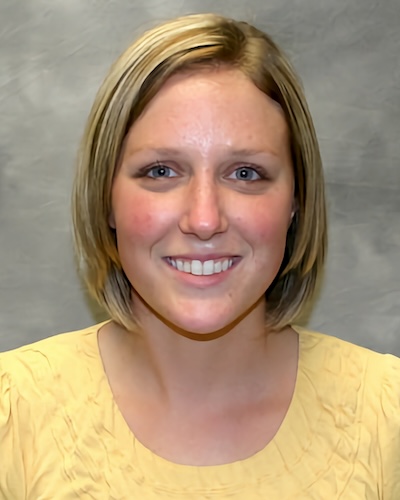
MS Walk ⟩
April 27, 2010, by Myka
Classes Getting Involved What are OS/OT?
I had a great time walking in the MS walk with other students and clients from my Optimal Living with MS class.
This semester, I’ve been taking a class with clients with Multiple Sclerosis, an autoimmune disease that affects the brain and spinal cord. Many of these people have difficulties doing what they want and need to do, and often have fatigue and weakness. This is a 12-week course run by the MS Society, and participants come to USC and work with OT students in the morning, and PT students in the afternoon. We led groups for them such as Roles and Identity, Meaningful Activities, Adaptive Equipment, Energy Conservation, Stress Management, and Time Management, among others. I led the group on Advocacy and Assertiveness, which was really fun! A neat part of the class was the opportunity to meet with PT students who are also taking the class, and get to talk to them about what OT does for this population.
We just finished the class, and all of the participants shared their feelings about the experience. Nearly all of them stated that they came to the class to receive physical therapy, and didn’t even know what occupational therapy was! However, over the course of the twelve weeks, they came to really appreciate the unique role of OT in their illness management and health optimization. We look further than the body — we look at the desires, wishes, and struggles of the individual. We look at the psychosocial aspect of living with MS and dealing with functional limitations and loss of meaningful roles and activities. I learned a lot from the participants as they shared the lived experience of MS and I understood that MS does not define these people. As the participant I worked with stated, “I have MS, MS doesn’t have me!”
I was able to attend the Los Angeles MS Walk last weekend at the Pasadena Rose Bowl. Most of the students in my class went, and one of our participants was there as well. It was a great experience to see so many people come together for a cause about which they were passionate. As I tried to raise money for the walk, I met more and more people whose families had been affected by the disease. The walk signified hope, not despair, as people celebrated together to raise money to research for a cure to MS.
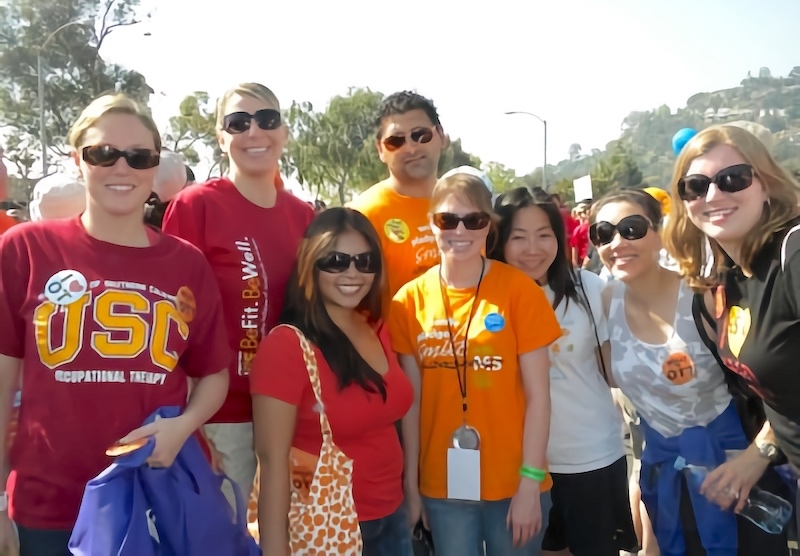
⋯
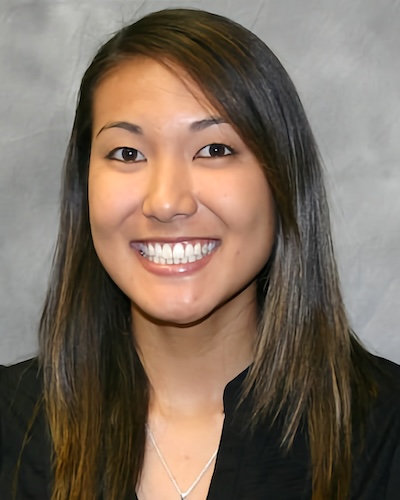
April is OT Month! =) ⟩
April 10, 2010, by Mari
Happy OT Month Student Ambassador Photo Shoot!
Yes, as Myka said, April is OT Month! Happy OT Month! The other day, all of us ambassadors decided to do a photo shoot to show off our awesome OT buttons! Here are some pictures!
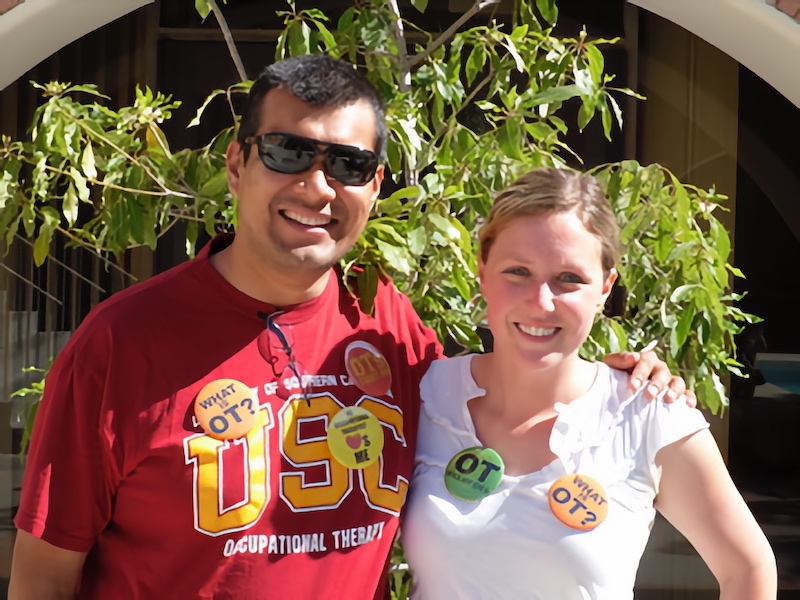
Gus & Myka!
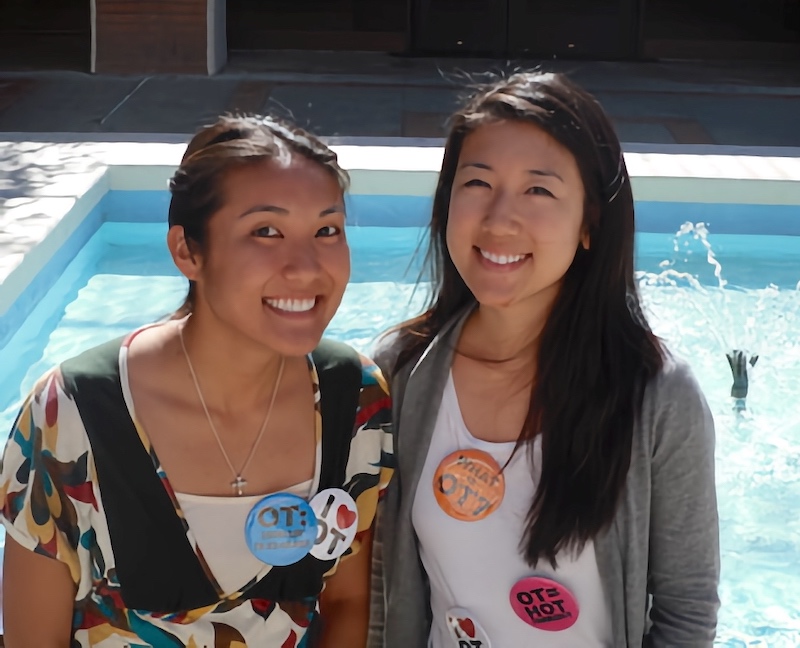
Me & Sarah!
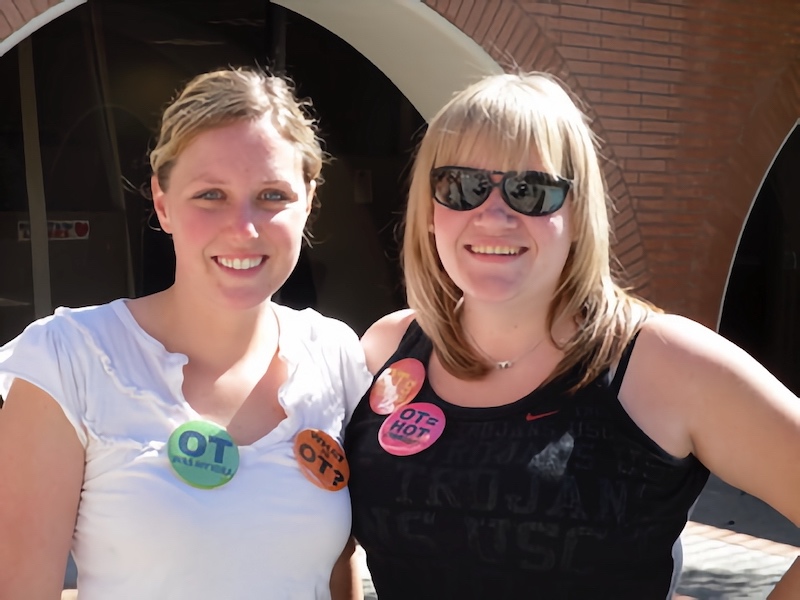
Myka & Michelle!
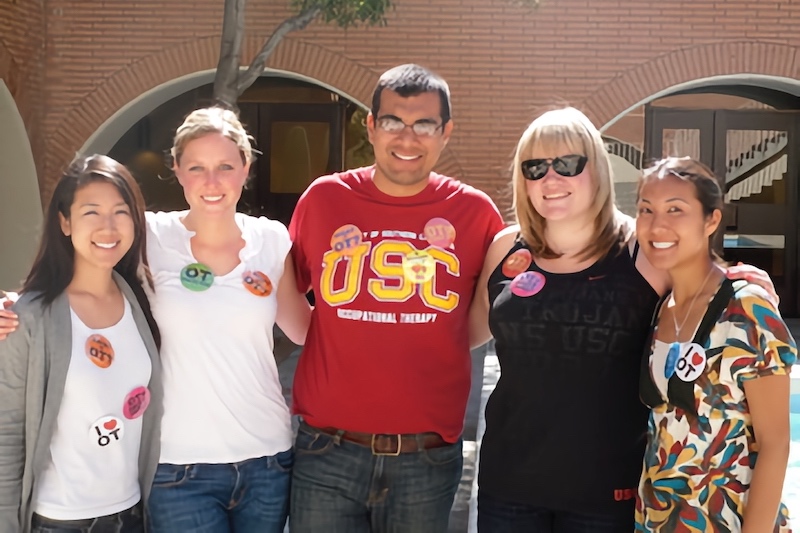
And, all of us together! Yay for the Class of 2010 Student Ambassadors!
OTs encourage people to “live life to its fullest” by helping them to maximize their participation in their occupations, or meaningful activities!
⋯





